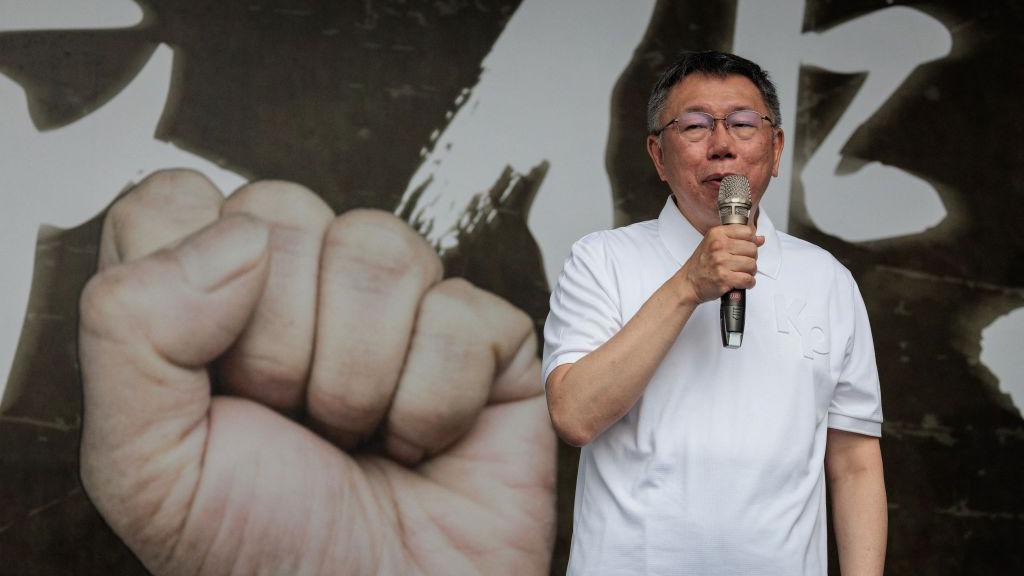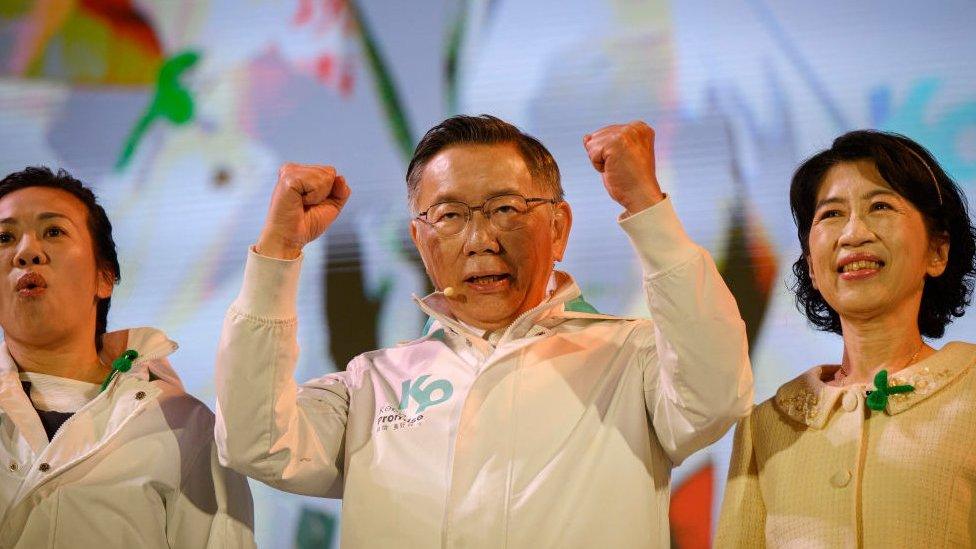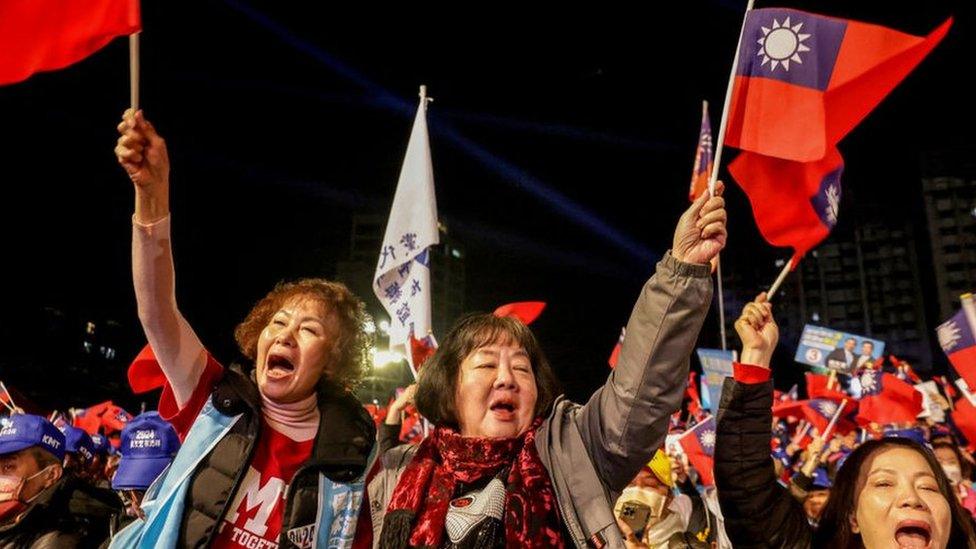Taiwan's ex-presidential candidate charged with corruption

Ko Wen-je was a dark horse in January's presidential election
- Published
Ko Wen-je, once a rising star in Taiwanese politics and a presidential contender, was indicted Thursday on corruption charges.
The 65-year-old is accused of accepting half a million dollars in bribes involving a real estate dealing during his term as mayor of Taipei, as well as misreporting campaign finances during his run for president in January.
Prosecutors are seeking up to 28.5 years in prison.
Ko's indictment deals a crucial blow to the political movement he represents, which has struck a chord with voters looking for an alternative to the ruling Democratic People's Party and main opposition Kuomintang.
Ko, who denied the corruption allegations, was arrested in September and held in detention.
Prosecutors said Thursday that he was among 11 people who were being prosecuted. Several other members of his Taiwan People Party have also been charged for misappropriating political donations.
A dark horse in January's presidential election, Ko won more than 25% of the vote - not far behind ruling party candidate Lai Ching-te's 40%.
Observers said at the time that even though Ko came in last among the three presidential hopefuls, his sizable showing pointed to voters' demand for a more pluralistic political landscape beyond the two main parties.
Ko rose to prominence by branding himself as a third choice beyond the two main parties. He criticised the DPP for fanning tensions with Beijing, which sees the self-governed island as its territory, but also blamed the KMT for being too deferential.
After supporting protesters during the anti-Beijing Sunflower Movement in 2014, Ko was elected Taipei mayor as an independent candidate.
He won a second term in 2018, but his politics appeared to shift and he expanded Taipei's relationship with mainland China.
Long known as a wildcard in Taiwanese politics, Ko has courted controversy with his brash rhetoric and quirky campaign ideas. He has been described as a "gaffe machine" and starred in a rap video in his 2018 re-election bid.
After his defeat at the presidential polls, he vowed not to give up on his political career and was expected to seek the presidency again in 2028. But it remains to be seen if his party can recover from the wave of prosecutions.
Ko's arrest has triggered protests from his allies and supporters, who accused the DPP of using the charges to suppress its opponents.
- Published14 January 2024

- Published13 January 2024
